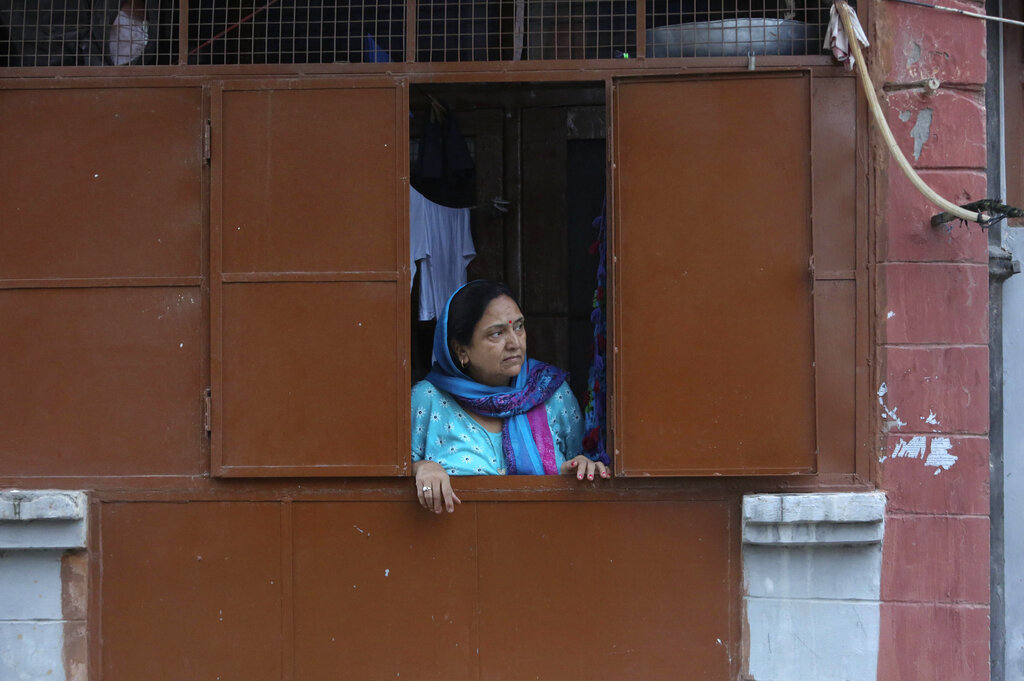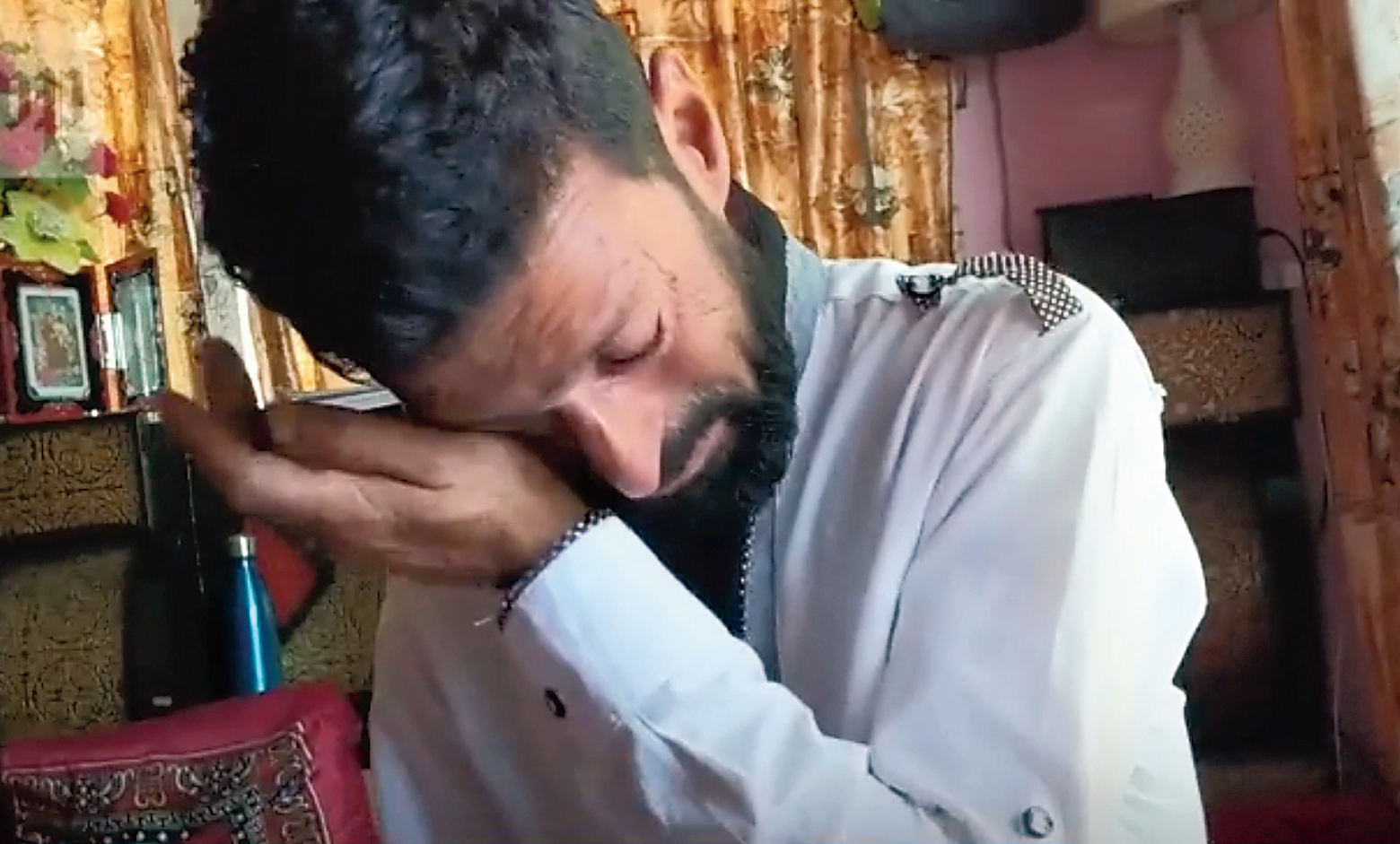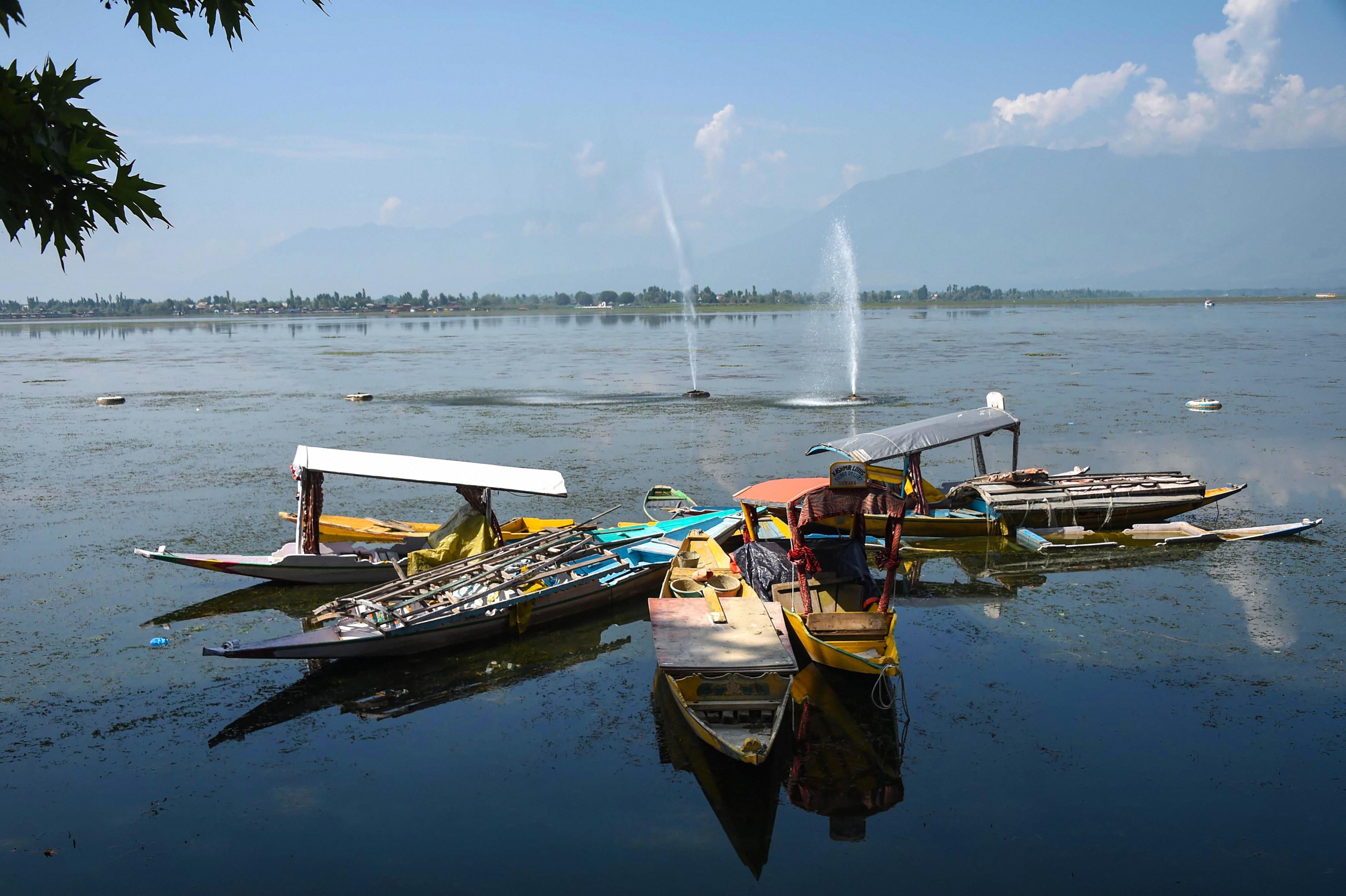Human beings probably best reveal themselves in how they regard fellow humans. In pronouncing upon the other, by word or by deed, they often pronounce upon themselves. A fortnight before I watched the lockdown shroud descend on Kashmir on the night of August 4-5, I happened to be crossing the Valley on another assignment — a remembrance, part personal, of 20 years since the war over Kargil. The Amarnath Yatra was in bustle, protected convoys were whistling up and down the road from Srinagar to Baltal, the preferred base camp to the holy cave. For a while, I journeyed lodged in the belly of one such column; the road is narrow and often only permits single-file traffic. An hour out north of Srinagar, between Ganderbal and Wayil, the pilgrim carriers came to a halt. It was a hamlet called Nunner. Habitation hugged the road close on either side; in a recess stood a copse-like opening shaded over by robust summer foliage; some village folk hung about outdoors, mostly idling. Presently, men began to leap off their buses, as if to a common trigger, and lined up along the wayside. They dropped their pyjamas and trousers — those wearing shorts were swifter on the draw — and began to relieve themselves on the village walls, someone’s home, someone’s shopfront, someone’s little lumber depot. Some among the impromptu party chortled, their delight not entirely on account of the unburdening of bladders; their delight, clearly, also a sensation of achievement. Others wiggled their pelvises and scored abstract patterns with their discharge. Yet others called out to mates to participate in the collective and wanton violation; many declined, but some were willing. No native of Nunner motioned them off their property, much less utter a word in reproach. The pilgrims had the company of armed jawans, in buses fore and aft. This was a secure desecration. I should state I tried to reason with their wrongdoing and suggested a more open space, just a little down the road, near Wayil perhaps, where Sindh nullah flows. I was shown a middle finger by one who wasn’t yet done fastening his drawstring. Another said, as if to spit on me: “Tuu bhi inhi mein se hai kya? (Are you also one of them?)”
The Indian male is notoriously unmindful and indiscreet about letting off pressure below his belly-button, but this was no lone-ranger act of furtive opportunism. This was a mindful, methodical dose of abuse, of which I was only a collateral recipient. That man had the bully’s post-barbarism cheer to his tone. Nunner — or Nunner by any other name — was always going to be their chosen place for defilement; there was, to the whole passing spectacle, a retributive triumphalism — here, this is what we will do to you, take it.
Nunner’s scars were already beginning to evaporate as the buses departed; the pilgrims had revealed a few indelible things about themselves.
Our book of revelations has proceeded infamously apace since that brag, brazenly made, in the summer of 2014 by one of our elected eminences — it can now be said that it is possible to have a majority government in this country without the support of... (read India’s largest religious minority; also read Majoritarianism). What did that reveal to us of the dispensation that governs us?
What do we reveal of ourselves when we ascend the high pulpit and brandish the rhetoric of paanch-pachees and shamshan-kabristan? What do we reveal of ourselves when we motion compatriots to banishment in Pakistan? What do we reveal of ourselves when we slaughter a youngster for the headgear he sports? What do we reveal of ourselves when we lynch because someone reads another book, follows another faith, eats another meal? What do we reveal of ourselves when we make a celebration of that lynching? What do we reveal of ourselves when we endorse the devilish marauders of a little girl? What do we reveal of ourselves when we make common cause to obstruct justice for the parents of that little girl? What do we reveal of ourselves when we cheer the assassin of the man we still call the Father of the Indian Nation? What do we reveal of ourselves when we collaborate to deliver landslide mandates to each and all of such unabashed purveyors of bigotry? What do we reveal of ourselves in turning lusty champions of hatred? What have we revealed of ourselves in Kashmir?
We have revealed that we can weaponize the prejudices of the party that profaned Nunner. We have revealed, too, that we can do to a whole people what Major Leetul Gogoi did to that young shawl-weaver called Farooq Dar. Only, Dar was far more fortunate. He was trussed up with ropes and was sent on one round astride the bonnet of an army jeep. Kashmir is trussed up in concertina wires, and it has been a month. Kashmir has not been allowed to speak, and it has been a month. Kashmir has not been allowed its say, and it has been a month. Kashmir is no longer Kashmir, and it has been a month. It was stripped and demoted through the mechanics of a diabolical subterfuge, and it has been a month. Kashmir’s supreme will came to reside in a governor who, until the dawn of the night of long knives, was professing he knew nothing of what the fuss was all about, and it has been a month. Kashmiris pronounced that will, through their governor, with their voices muzzled and often interned, their conversations abrogated, their movement frozen, their neighbourhoods sealed, their aspirations and anger tear-gassed, their protests pelleted, their prayers quartered. They make the biggest jailhouse of this democracy, nearly eight million inmates. It has been a month. It’s a patent lie that Kashmir is normal; to label reports of a populace seething and stifled propaganda is the most pernicious propaganda.
Kashmir is a hard and complicated place, no less because it also lies infiltrated and instigated by rogue instruments across the cantankerous fence. It is also a rending place because its soul was inconsolably cauterized by the gun-point hounding out of Kashmiri Pandits in 1989-90. Governments can be hard and complicated and rending in their ways too. Our governments have been no exception; they’ve been serially hard on our people. In the Northeast, in Punjab, in West Bengal, in the troubled jungle geographies of Andhra Pradesh, Maharashtra, Odisha and Jharkhand, all across this sovereignty during the Emergency. In the “defence of the realm”, governments have employed unspeakable excesses. But seldom has the celebration of such excesses been so wide and so untrammelled and unashamed. Let Kashmiris cry. Lock them up, starve them, be done with them, we care that they should be dealt with, now or never. Let them suffer. Let them be maimed. Let them die. It’s all well and just if Kashmir can be vacated of the Kashmiris who inhabit Kashmir. Kashmir is the paradise of our lusting, Kashmiris are the parasites that need extinguishing to make way for us. It’s what we have revealed of ourselves, one human to another, this past month. You must brush your teeth before you smell the coffee each morning; one morning, look yourself up in the mirror. It’s been a month, a fair time to reveal yourself to yourself.













